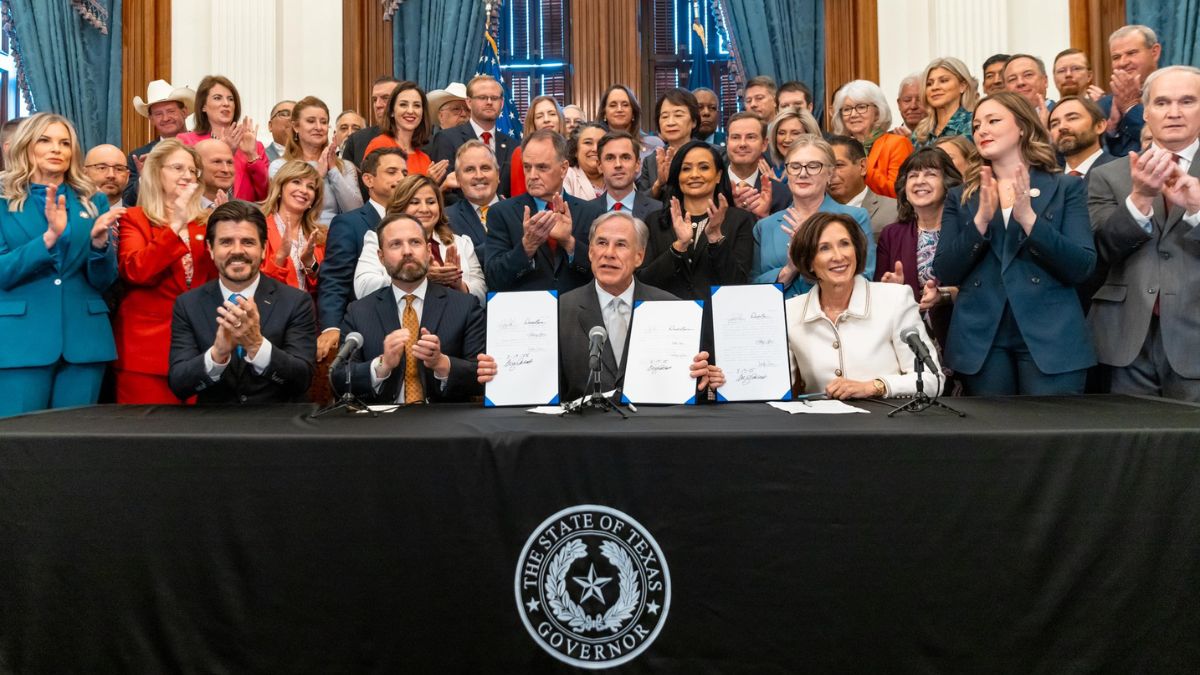Texas is set to roll out one of the most far-reaching restrictions on foreign land ownership in the United States.
With the enforcement of Senate Bill 17 (SB 17) beginning September 1, 2025, the US state will bar citizens, businesses and state-linked entities from four nations — China, Russia, Iran and North Korea — from purchasing or leasing most types of property.
Supporters of the law argue it strengthens national security and safeguards critical resources.
Critics, however, view it as discriminatory, recalling the troubled history of anti-Asian legislation in the US.
What the Texas property ban means
The central provision of SB 17 prohibits individuals, companies, and organisations connected to the four listed countries from acquiring property in Texas.
This includes residential homes, farmland, and commercial buildings. Agricultural land, timber, water rights, and mineral-rich areas such as oil, gas, and rare earths are specifically highlighted as strategic resources off-limits to foreign buyers.
There are some exemptions.
US citizens, permanent residents (green card holders), and individuals on valid visas may purchase one primary residence, but they cannot buy additional properties or make real estate investments.
Rentals are also capped at less than one year for nationals of the targeted countries.
Signing the legislation on Wednesday, Texas Governor Greg Abbott described it as the “toughest ban in America”. He justified the move by framing it as an urgent security measure.
“It is very simple. Hostile foreign adversaries like China, Russian, Iran, and North Korea, as well as foreign terrorist organisations like Tren de Aragua [Venezuela-based criminal organisation], must not be allowed to own land in Texas,” Abbott said.
Editor’s Picks
In my State of the State Address, I called on the Texas Legislature to protect Texas from infiltration by foreign adversaries.
Today, we deliver on that promise.
I signed three key laws that protect Texas against threats from hostile foreign actors. pic.twitter.com/yd3MCDT3KM
— Greg Abbott (@GregAbbott_TX) August 26, 2025
“They should not be allowed access to our critical infrastructure, and they may not be allowed to exploit our border. Stiff, criminal penalties will be inflicted on those who violate these laws.”
Violations carry significant punishments. An individual could be charged with a state jail felony, leading to up to two years of imprisonment and fines reaching $10,000.
Companies or organisations in breach of the law face penalties of up to $250,000 or half the value of the property transaction.
How Texas politicians have defended the move
Proponents of SB 17 have repeatedly pointed to US intelligence assessments that highlight the risks posed by adversarial nations purchasing land near critical facilities or within resource-rich regions.
The legislation accuses China in particular of engaging in “coercive, subversive, and malignant influence activities to weaken the United States” as part of its ambition to surpass the US in economic, military and political spheres.
Texas Senator Lois Kolkhorst, the bill’s Republican author, has been one of its most vocal champions. At a May press conference, she said the law represents “the strongest protection national security bill of any state passed.”
She added, “There are people that are agents of those countries and they are buying up some of our strategic assets. We’re not going to have that anymore.”
Kolkhorst first introduced a similar measure in 2023, but that proposal stalled after criticism, particularly because it did not exempt permanent residents.
She defended the measure again this year, declaring, “To our adversaries that want to do harm to our state and nation: You’re not buying up Texas land.”
Other companion laws signed alongside SB 17
SB 17 was part of a wider package targeting foreign influence. Abbott ceremonially signed three bills into law:
-
House Bill 128: Prohibits Texas governmental entities from entering sister-city agreements with adversarial nations, while encouraging partnerships with US allies.
-
Senate Bill 1349: Establishes a new criminal offence for transnational repression and requires law enforcement training to address related threats.
-
Senate Bill 17: Restricts real estate ownership for nationals, companies, and government-backed organisations from China, Russia, Iran, North Korea, and designated transnational criminal organisations.
Together, the laws reflect Texas’s broader stance against foreign actors perceived as adversaries, linking land ownership to national infrastructure security and foreign policy.
Why Chinese nationals are most affected
Although SB 17 targets four countries, Chinese nationals are expected to be the most impacted. Texas is home to at least 120,000 people born in mainland China as of 2023.
The state also holds the largest share of Chinese-owned land in the US, with 123,708 acres, nearly 45 per cent of all Chinese-held land nationwide.
Between 2011 and 2021, Chinese companies launched 38 investment projects in Texas, worth $2.7 billion and creating more than 4,600 jobs, according to state data. Now, some of those companies are reportedly reassessing their presence in Texas in light of the restrictions.
Despite the exemptions for permanent residents and visa holders with a primary home, many Chinese Texans fear the law could create an atmosphere of suspicion.
What anti-Asian history in the US tells us
Opposition to SB 17 has been strong among civil rights organisations, Democratic lawmakers, and Asian-American community groups. They argue the law echoes the long history of anti-Asian sentiment in the US.
The Chinese Exclusion Act of 1882 barred Chinese labourers from immigrating to the US for decades.
Similarly, Texas had an alien land law that restricted land purchases by non-citizens until 1965, which was ultimately repealed because it was considered discriminatory and harmful to economic development.
Activists also point to the surge in anti-Asian discrimination following the Covid-19 pandemic, warning that laws like SB 17 could worsen profiling against Asian-Americans.
The American Civil Liberties Union (ACLU) and other advocacy groups have filed lawsuits arguing the law violates equal protection rights.
Although a US federal judge dismissed an initial challenge earlier this month, attorneys have appealed the decision to the US Fifth Circuit Court of Appeals.
Why this type of law isn’t new in the US
Texas is not the first state to pursue foreign land restrictions. Since 2021, 26 states, mostly Republican-led, have passed over 50 laws limiting land ownership by foreign nationals, often singling out China.
A parallel case in Florida is already working its way through the courts, with plaintiffs arguing the ban there unfairly targets Chinese residents and violates constitutional protections.
The national conversation around foreign land ownership heated in 2023, when a Chinese high-altitude balloon flew across North American airspace, sparking concerns over espionage and infrastructure security.
Although foreign-held farmland across the US accounts for only a small percentage of total acreage, Chinese investors held just under 384,000 acres in 2021, representing less than one percent of all foreign-owned land.
Texas has one of the fastest-growing Asian-American populations, estimated at 1.5 million, and has historically benefited from international trade and investment.
At the same time, Texas’s size, border and energy resources make it a focal point of US security concerns.
With inputs from agencies
End of Article

)

)